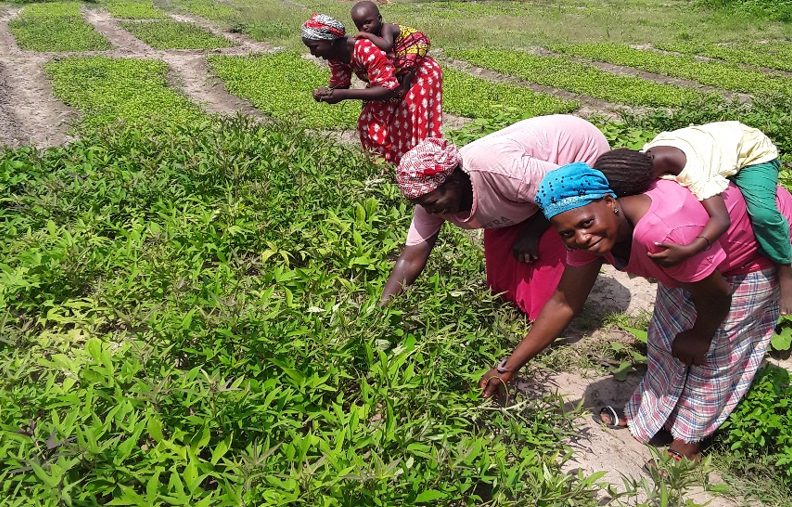Image: Oyah Christy, seated, is given vital information about preventing the spread of COVID-19
Before March 2020, a world of habitual mask-wearing, social distancing and travel restrictions would have been incomprehensible to many of us. Fast-forward to December 2021, and these things have become the norm. But just imagine you had seen all of these changes happen around you – and no one had explained to you the reason behind them.
Oyah Christy is one woman who found herself in this situation. She is in her late 80s, and lives in a rural community with no access to mobile networks or radio signal, in Cross River State, Nigeria. Oyah has worked all her life as a subsistence farmer, and has 10 surviving children and many grandchildren.
A hearing impairment and a lack of formal education – together with the remoteness of her village – meant that Oyah had received no information about the COVID-19 pandemic. In her own words, she couldn’t understand why some people around her had suddenly “started covering their noses and mouths with pieces of cloths”.
In May 2021, a team of people from the local government and United Purpose paid Oyah a visit, as part of a house-to-house information activity about preventing the spread of COVID-19.
The team were able to overcome language barriers by speaking with Oyah in her local dialect through an interpreter. Finally, Oyah was able to get answers about the changes she had observed around her – as well as vital information about COVID-19.
Oyah expressed surprise that it had taken her this long to learn about the pandemic – but also a deep sense of satisfaction that the team had reached out to rural households like hers, and taken the time to explain about COVID-19 and how to prevent it.
Oyah has since gone on to encourage other members of her household to use face masks in public spaces and to make themselves available for the vaccine whenever the opportunity arises.
Context:
This activity was conducted as part of our COVID Response and Vaccine Preparedness in Nigeria (CRAVPIN) project, funded by the Welsh Government. The main objective of this project is to strengthen healthcare services for COVID prevention and to provide information that helps communities overcome vaccine skepticism. Some 756,103 people have been reached by this project.





